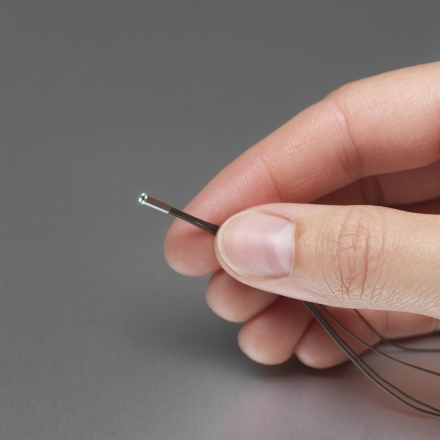Optical Systems for Medical Applications will be Showcased by FISBA at BIOMEDevice

FISBA, an expert in micro optics, develops solutions tailored specifically for biomedical and imaging applications. The FISBA FISCam™, which will be featured at BIOMEDevice May 3-4, is a customizable micro camera delivering impressive 400 x 400 resolution images in a compact design measuring less than 2 mm in diameter.
The FISBA FISCam™ is exceptionally tiny and lightweight, yet still produces crystal clear images for a number of innovative applications including endoscopy, online analysis, process monitoring, process control, and particle detection and counting.
FISBA will also have the FISBA RGBeam™ and microlenses on hand at BIOMEDevice. The FISBA RGBeam™ is a customizable laser module offering precise alignment, adaptable wavelength and power, and fiber coupling with single-mode and multi-mode fibers.
The FISBA RGBeam™ is often used for medical diagnostics and is also a solution for virtual and augmented reality. FISBA’s microlenses for medical applications are available in diameters as small as 0.5 mm and are offered in various glass types and shapes.
These microlenses are widely used for various medical systems, including endoscopy and other life science applications.
Discover more by visiting FISBA at BIOMEDevice Booth 360.
About FISBA
FISBA is a worldwide leading supplier of customized optical components, systems and microsystems. Since 1957, it has been a company priority to stay progressive without losing sight of the values on which we were founded. This mindset has enabled FISBA to become one of the most innovative suppliers in the optics industry, as well as a trusted partner to our customers. FISBA operates at facilities in Switzerland, Germany and the USA.
Discover the new website at www.fisba.com
Media Contact
Birgit Rauch, Head of Marketing Communication
Media Contact
All latest news from the category: Trade Fair News
Newest articles

First-of-its-kind study uses remote sensing to monitor plastic debris in rivers and lakes
Remote sensing creates a cost-effective solution to monitoring plastic pollution. A first-of-its-kind study from researchers at the University of Minnesota Twin Cities shows how remote sensing can help monitor and…

Laser-based artificial neuron mimics nerve cell functions at lightning speed
With a processing speed a billion times faster than nature, chip-based laser neuron could help advance AI tasks such as pattern recognition and sequence prediction. Researchers have developed a laser-based…

Optimising the processing of plastic waste
Just one look in the yellow bin reveals a colourful jumble of different types of plastic. However, the purer and more uniform plastic waste is, the easier it is to…



